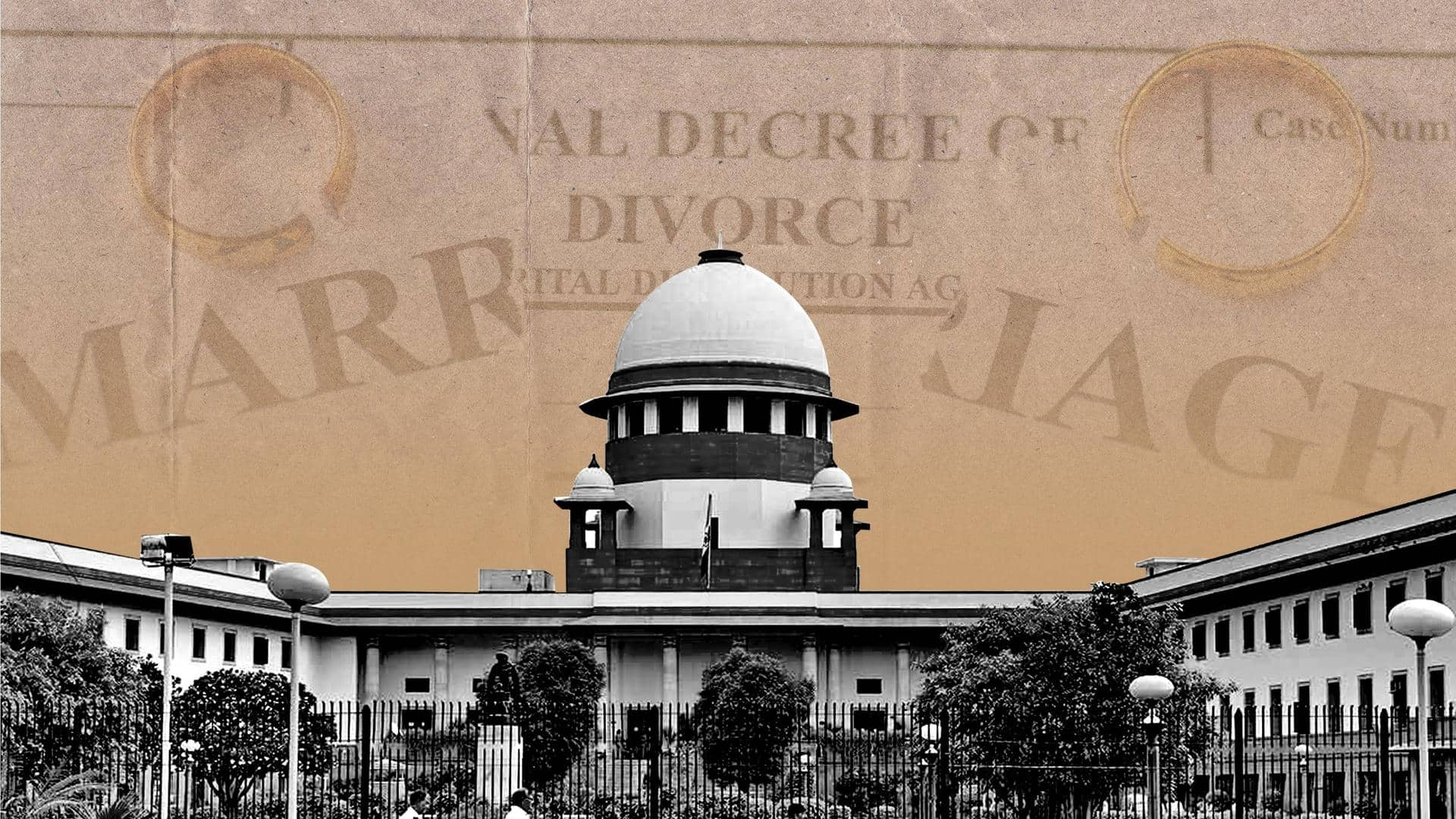
Supreme Court's landmark decision on divorce, waived six-month waiting period
What's the story
The Supreme Court said on Monday it could dissolve "irretrievably broken-down marriages" using inherent powers under Article 142 of the Constitution.
It also ruled the six-month waiting time for divorce by mutual consent could be waived as continuing in such marriages amounts to "cruelty."
Notably, the matter was being examined by the Constitution Bench in view of Section 13B of the Hindu Marriage Act.
Context
Why does this story matter?
The judgment comes nearly eight months after the SC decided to examine whether it could invalidate marriages between separated couples without both parties' approval.
For more than two decades, the court has used its Article 142 authority to invalidate "irretrievably broken marriages."
Article 142 deals with the implementation of the SC's rulings and directions to deliver "complete justice" in any matter before it.
Order
What did Supreme Court say?
The five-judge Constitution Bench of Justices Sanjay Kishan Kaul, Sanjiv Khanna, Abhay S Oka, Vikram Nath, and JK Maheshwari stated, "We have also laid down factors which can determine when there will be an irretrievable breakdown of the marriage."
The bench has also outlined how to balance equities in such cases, especially regarding maintenance, alimony, and children's rights.
Matter
Primary matter pertains to waiting period under Hindu Marriage Act
The primary case before the court was whether the necessary waiting period for divorce with mutual consent under Section 13B of the Hindu Marriage Act in broken-down marriages could be dismissed by the apex court by exercising its Article 142 powers.
However, the Constitution Bench decided to consider whether marriages could be dissolved on the grounds of an "irreversible breakdown."
About
How Supreme Court defines 'irretrievable marriage'
The court characterized an "irretrievable marriage" as one in which the husband and wife had been living separated for a significant amount of time with "absolutely no chance of their living together again."
Irretrievable breakdown of marriage is not a ground for divorce under the Act, so the court has interpreted "cruelty" to consider a broken marriage while taking the couple's plight into account.